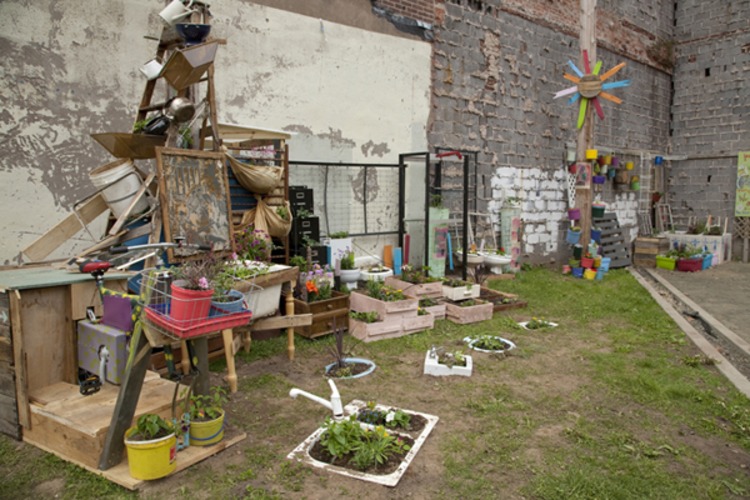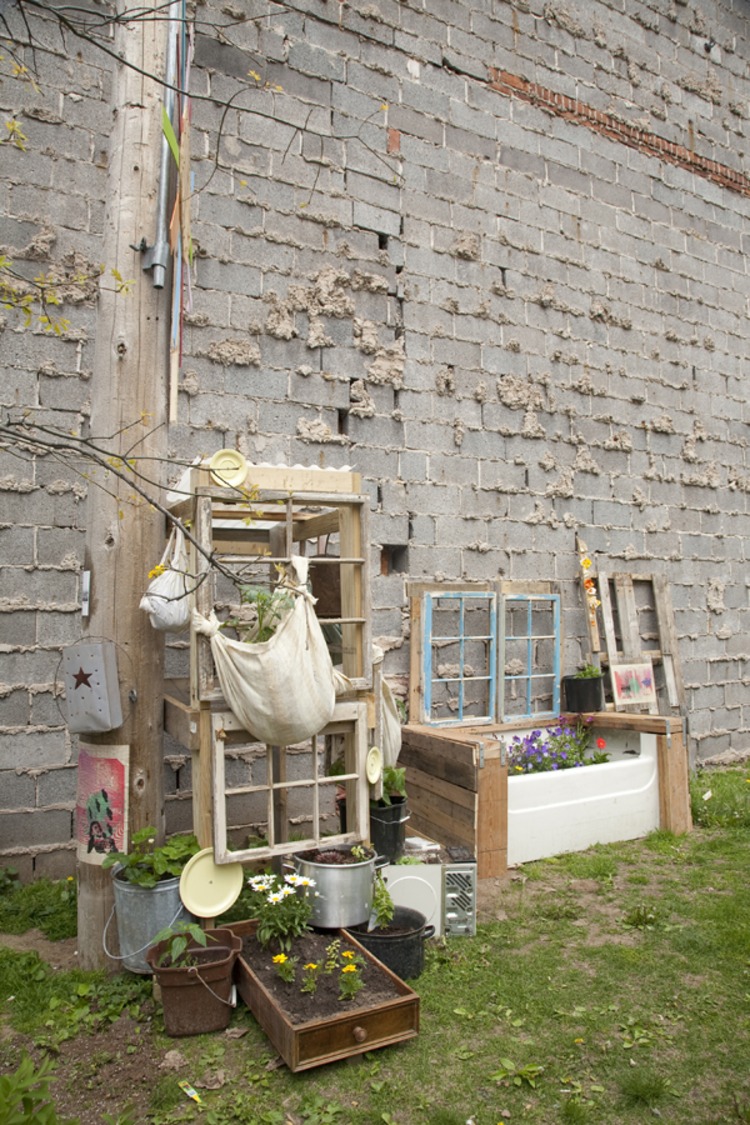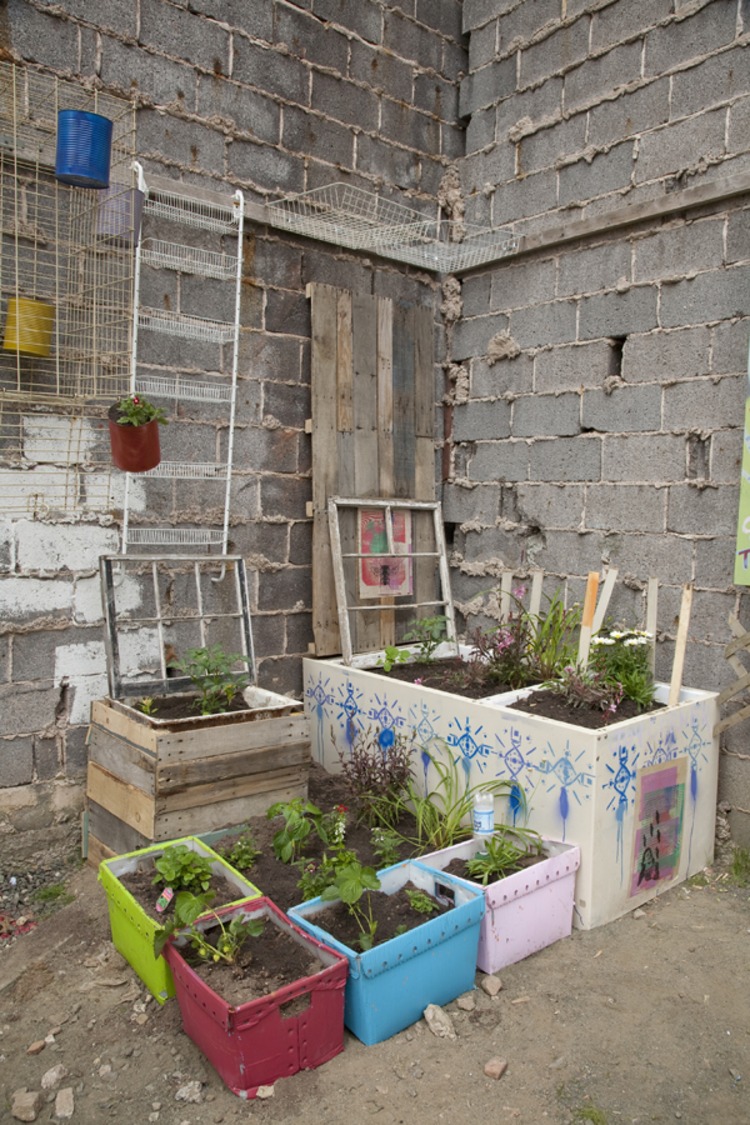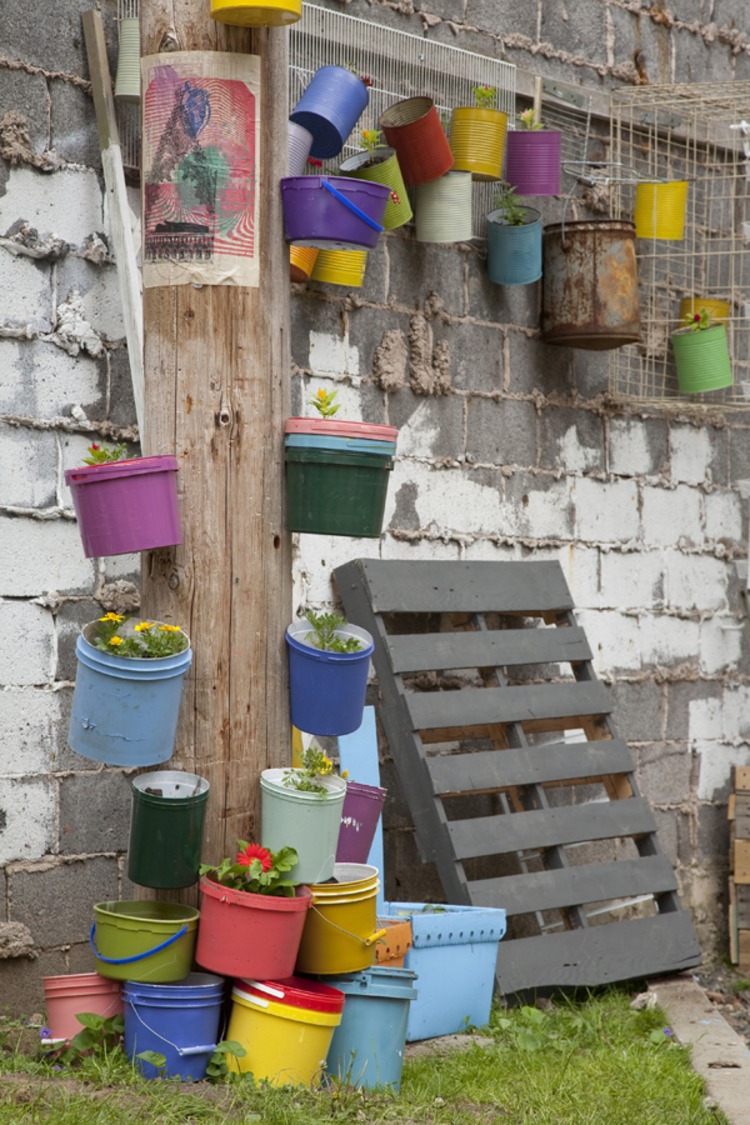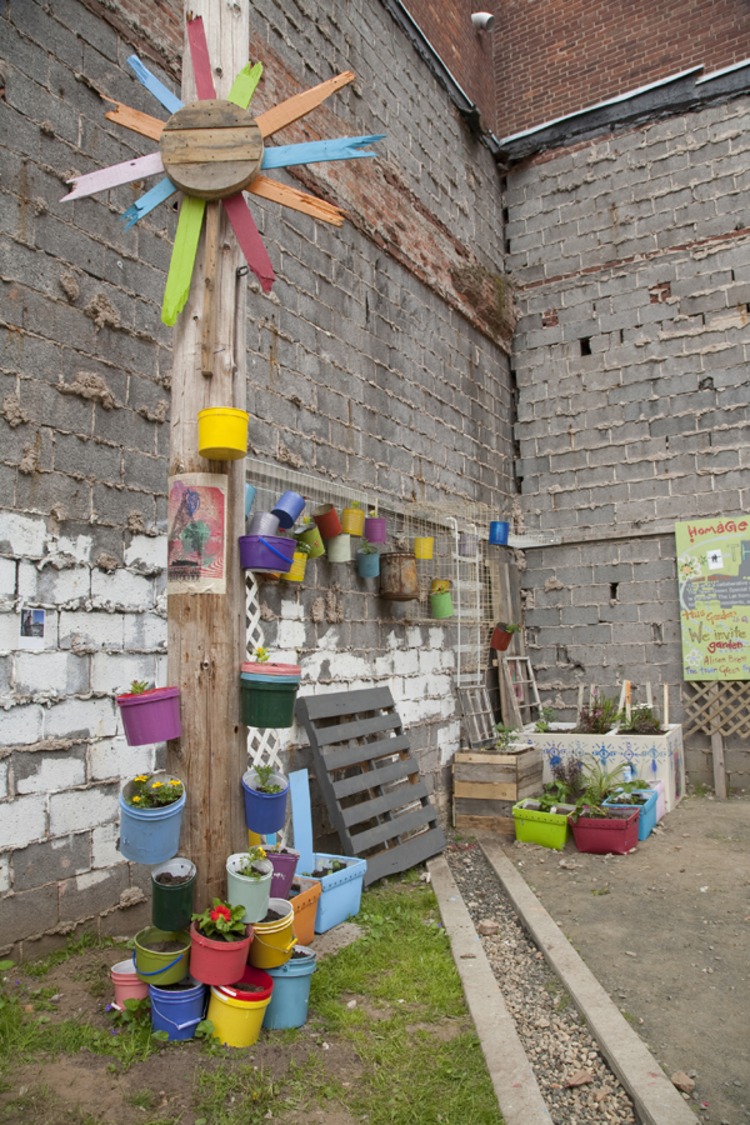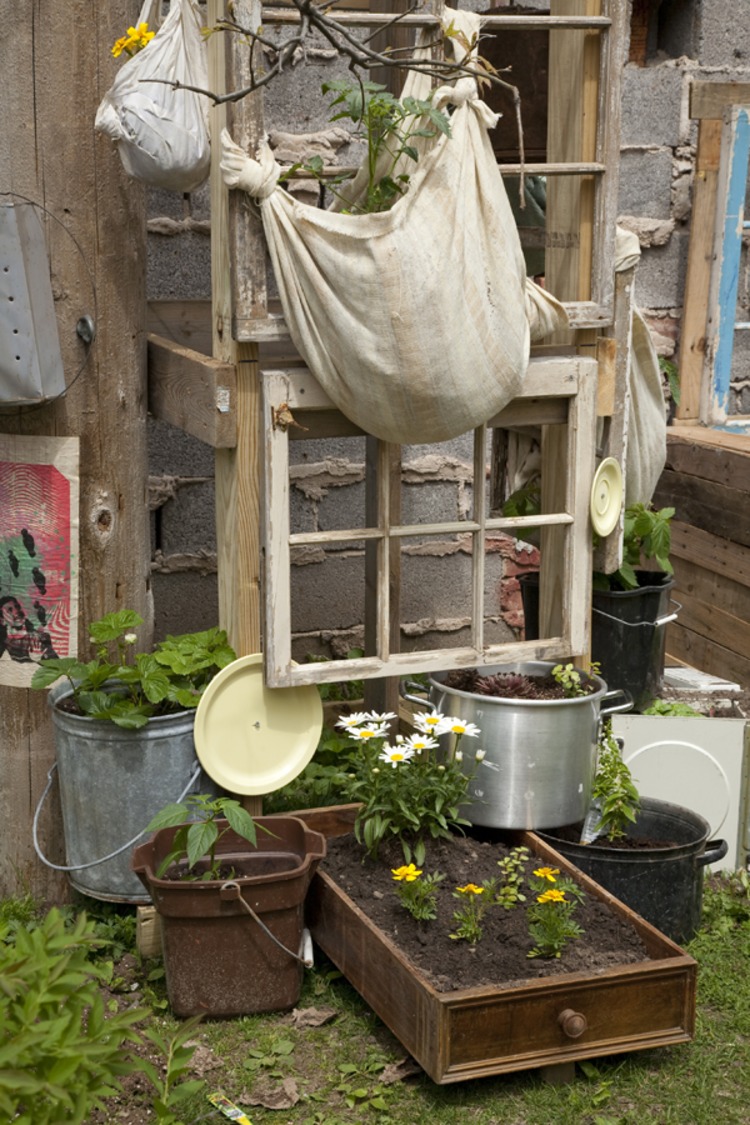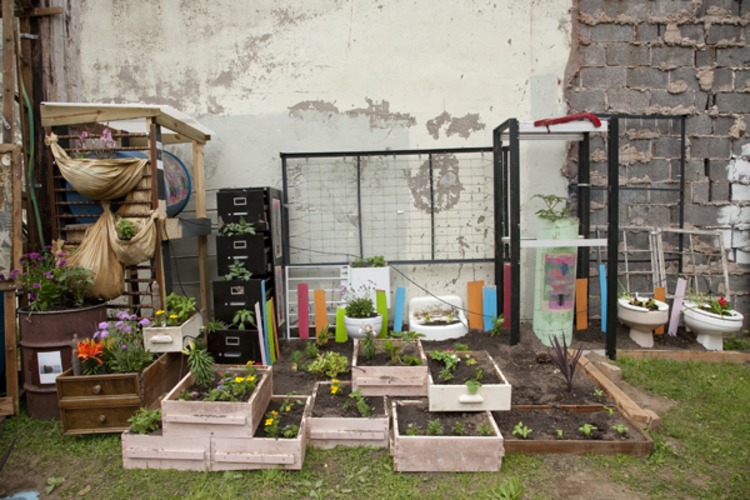May 12 – September 16, 2011
Artspace/The Lot
812 Chapel Street, New Haven, CT
Homage to Guerrilla Gardening (2011) is a site-specific installation conceived by Alison Williams for Marie Celeste, and commissioned by Artspace for The Lot–a municipal pocket park in New Haven.
With the help of a dedicated team of students, friends, family and generous supporters across New England, Williams cultivated a fantastic community garden out of the most unlikely objects. Old refrigerators, microwaves, wash basins, (the odd toilet or two), pieces of well-worn furniture and formerly personal knick-knacks, typically bound for the recycle center or the dump, have been transformed into containers for growing edible plants, flowers, and trees. Williams converted a donated push bicycle into a water pump; when visitors pedal the bike, they activate the water pump, which in turn, activates the drip system that traverses the garden and feeds the plants. Basil, parsley, mint, and other common herbs can be found in freshly painted discarded tin cans and plastic buckets, while tomatoes, strawberries, lettuce and arugula grow in disused kitchen saucepans and pots. File cabinets, bureau drawers, and a bathtub are equally put to good use as planter boxes for daisies, pansies, marigolds, and other flowers yet to bloom.
With its emphasis on reclamation, recycling, and reuse, Homage to Guerrilla Gardening, embodies the ethos of environmental activism. Individuals, rather than government institutions or private enterprises, are empowered to care for the project in oder to sustain the beauty and functionality of the garden. Although limited resources force us to collectively “make do” with what we have, Williams’ work reveals that such constraints, paradoxically, present opportunities for invention and change.
Alison Williams is one of eleven artists participating in Marie Celeste, which is on view in the Artspace galleries.
About:
Marie Celeste is a thematic group exhibition that uses the recent environmental phenomenon of “Colony Collapse Disorder” (CCD) or “Mary Celeste Disorder,” in which bees mysteriously disappear from their hives, as a metaphor for environmental consciousness and an exploration of the ethical sublime in our post-industrial era.
